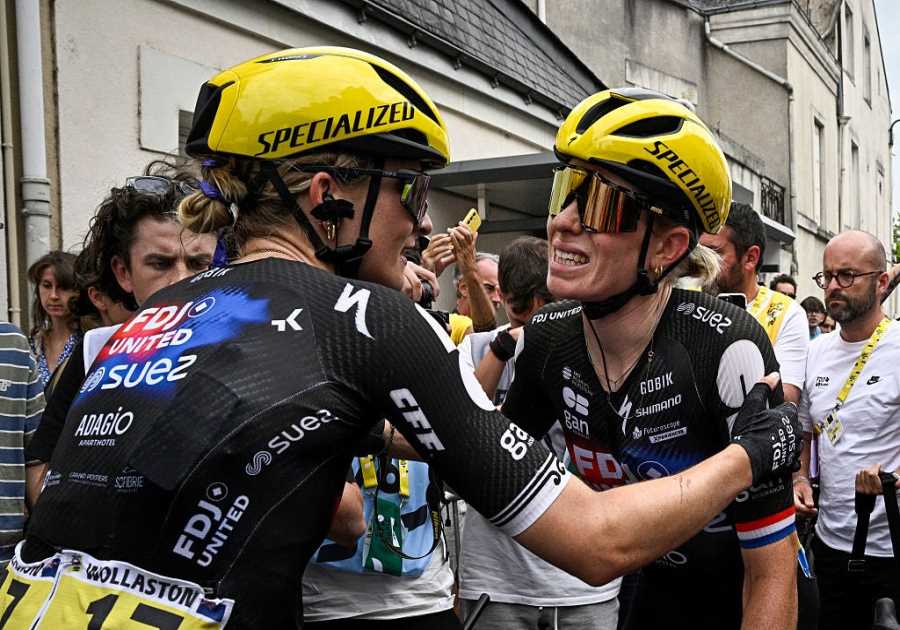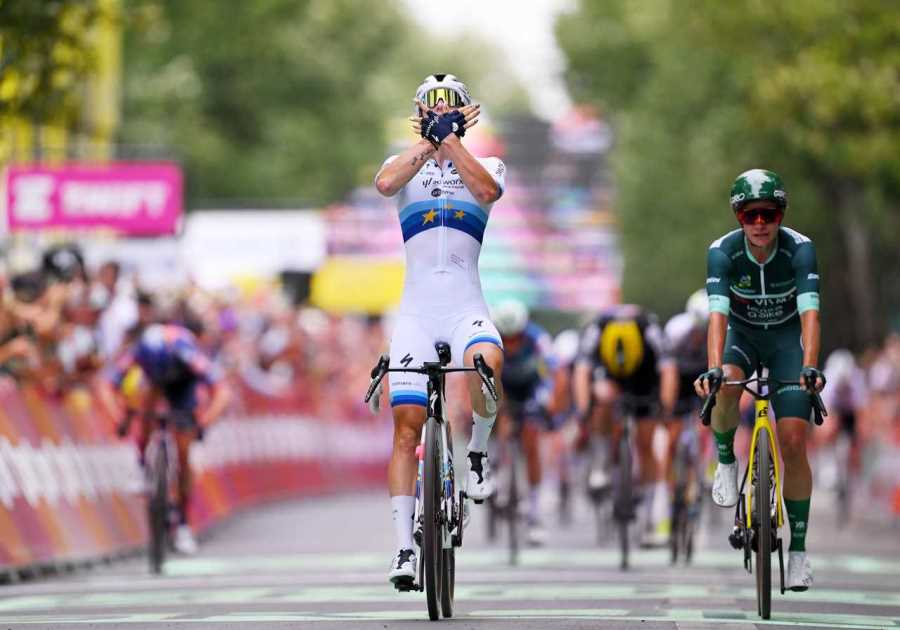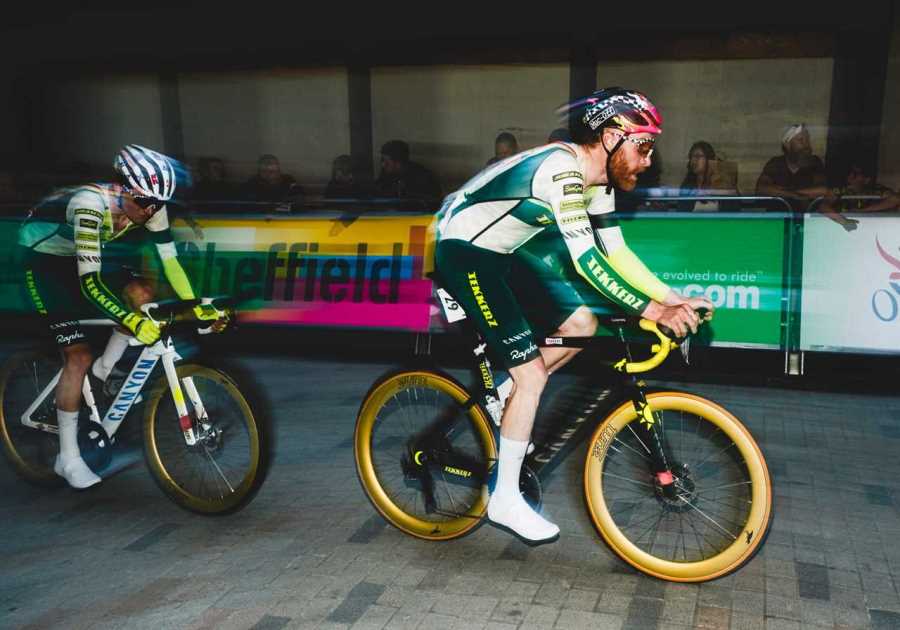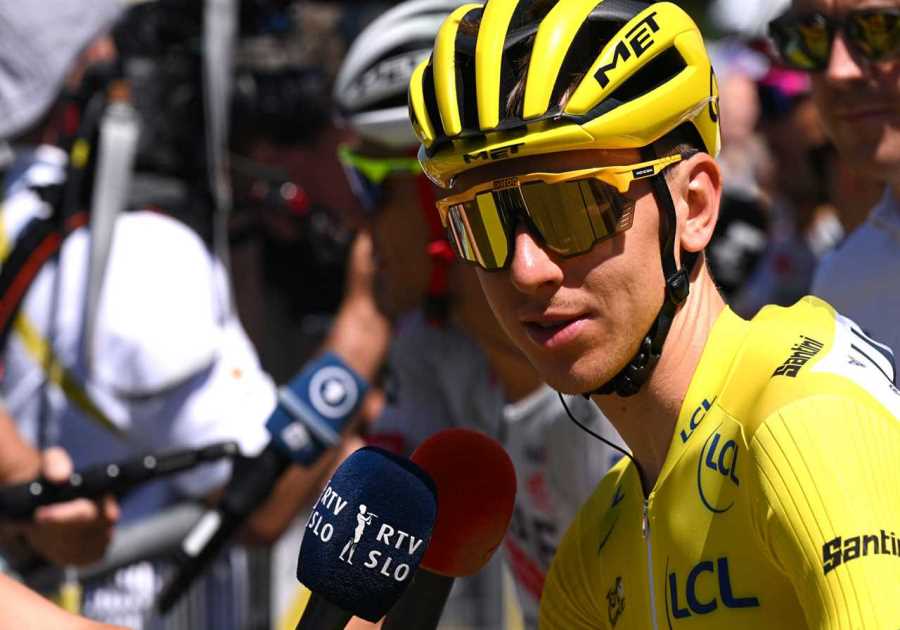HOSTED BY: https://fatmtnbike.com
TODAY'S RIDE
Taylor Phinney: There was a huge amount of opiate abuse in the peloton
Retired American pro Taylor Phinney has spoken out about opiate abuse in the peloton, cortisone injections, the facade of sponsorship deals and the control he claims was exerted over riders by team management.
In a revealing interview with the Thereabouts podcast, recorded last fall and recently released, Phinney reflects on his career and the factors that contributed to his retirement from the sport at the age of 29 in 2019 following a nine-year WorldTour career.
“I’d been kind of fantasizing about retiring from the sport for quite a while,” Phinney admitted. “Everything is mapped out for you, your calendar, and what you’re going to be doing on a week-to-week basis. You pretty much know in January what you’re going to do all the way to October. And then even then when you have a bit of ‘off-season’, three weeks isn’t really enough time to express yourself as an adult.”
As well as having your time sectioned off by someone else, Phinney had a problem with being contractually obliged to promote brands that he didn’t actually use or like.
“What I started having a problem with pretty early on my career was that I was promoting things because I was told and paid to promote them but I didn’t actually like them and I didn’t actually use them,” Phinney said. “So then I was like, ‘okay, in reality, I’m lying to a whole group of people who are going to go out and buy this thing because they think I like it’. When they actually know I’m being paid to push this product that they’re going to buy. There’s this weird thing the whole industry feeds off, this ignorance, and I don’t like that.”
“I don’t need to have a million followers on Instagram, I don’t need to do this whole thing because it feels like I’m taking my soul and I’m just giving it away to a bunch of different people who don’t care about it. And that’s going to start to make me act like a weird person, like a sociopath, and that’s not what I want from my life.”
With contract negotiations, Phinney points out that you sign with a team and then subsequently you have 20 different brands to promote, brands that you don’t choose. When finding a new employer, teams come to you and offer “the whole world on a plate” and although the agreed salary hits your bank account every month, he estimates only 50 per cent of the other promises that convinced him to sign for that particular team were ever delivered on.
“Just keep that in mind that you are the pretty girl at the bar and there are just going to be lots of weird trickster dudes coming in,” a fantastic analogy from the 31-year-old. “We’re not talking about just American trickster dudes, there are Dutch trickster dudes, it’s international you know?”
“They speak a convincing language you don’t understand but you like it. I just want people to be careful and recognise that it’s all a game and all of the guys playing the game, all these guys on teams, they all talk to each other. “
“It’s weird, you’re a pawn as a rider. You’re a pawn in this larger, weird ego game that these guys are playing that you will never understand unless you actually start to play that game yourself.”
Phinney continues, saying that when he won the opening stage and first maglia rosa of the 2012 Giro, he was “so stoked” and just wanted to be friends with everybody and so congratulated each subsequent stage winner on Twitter. Before long, Phinney says team management implemented a team-wide mandate that you weren’t allowed to congratulate riders on other teams, “but I was the only person really doing that,” Phinney said. “So why don’t you a) talk to me about it and also b) what the fuck? Are you serious? Where’s that coming from.”
Then, Phinney moves on to talking about drug abuse in the sport.
“There was a time when I was quite outspoken about finish bottles in races,” Phinney began. “When I first started racing the EPO and blood doping era was seemingly past but there was still a huge amount of opiate abuse in the sport.”
“I don’t know if that has completely gone away but it was pretty widespread in my first couple of years that you would smash a couple of Tramadol at the end of the race, which is basically like taking a Vicodin or two along with a bunch of caffeine and maybe some Sudafed. That’s a bomb right there, if I took one of those right now it would send me to the moon. I was never into that, I would get offered that but I was like I don’t think I need an opiate painkiller today to get through this race.”
As well as opiates, Phinney reveals that when he had a cortisone injection after breaking his leg, he finally understood just what they could do for performance.
“But it was just a thing [painkiller abuse], especially in the Classics, so many of the guys were doing that. I was kind of like, ‘this is fucked up’. So I said some stuff about it in an interview, and then I also talked about how there was a fair amount of coincidentally timed cortisone injections being given to some people going into certain races. You don’t need it. If you need a cortisone injection you should be out for a while. Not like, I just got a cortisone injection and now I’m like, winning Flanders. “
“I had a cortisone injection eventually when I broke my leg and I was just flying and half of my leg didn’t work. I was like, okay, I think I understand this now. I spoke out about that and I received quite a bit of backlash from the management.”
Clearly, and although the peloton is believed to be much cleaner than in decades past, Phinney is referring to the Omertà that still exists within cycling, that encourages you to keep your head down and just focus on riding your bike.
“I mean, of course, as an entitled young American, a confident young man I was like of course I should be able to say whatever I want about this because in my mind this is wrong and that’s what you grow up reading about in the news. People talking about the things that are wrong and then hopefully the thing gets fixed.”
“But once you’re inside of the machine and you start talking about the things that are wrong, and then those things are closely linked to where your paycheck is coming from…also you’re in a position where people can tell you what to do and punish you for not obeying the most random rules that they can put in place at any point in time. You realise actually you’re not like Harry Potter, you’re not the hero of this story because you have to shut up.”
“I definitely struggled in my first couple of years just with feeling like I couldn’t express myself. Or that I wasn’t celebrated in the way I thought I should be for speaking out honestly about things I thought were wrong within the actual group of the peloton or management itself. Outside of that people were like ‘yay he’s speaking up’ against this or that. But within the group, there’s very much this ‘this is our secret, our world’.”
Phinney admits he thought his individualism and particularly the way he was an early adopter of social media was part of the reason why teams hired him. However, he soon realised that, like in any other high-powered environment, you’re caught in a link of people and everyone is receiving something from above and pushing it down the chain.
“As the rider, because you go out to do the race, in your mind you think you are the most important person,” Phinney explained. “It’s also everyone has this job to make you think you’re important but you realize there are all these people above you holding these strings and you really have no power. You cant do anything about it, they own your image rights. They own…they own you.”
Read MoreBy: Jonny Long
Title: Taylor Phinney: There was a huge amount of opiate abuse in the peloton
Sourced From: cyclingtips.com/2022/04/taylor-phinney-there-was-a-huge-amount-of-opiate-abuse-in-the-peloton/
Published Date: Wed, 06 Apr 2022 17:34:52 +0000
___________________






